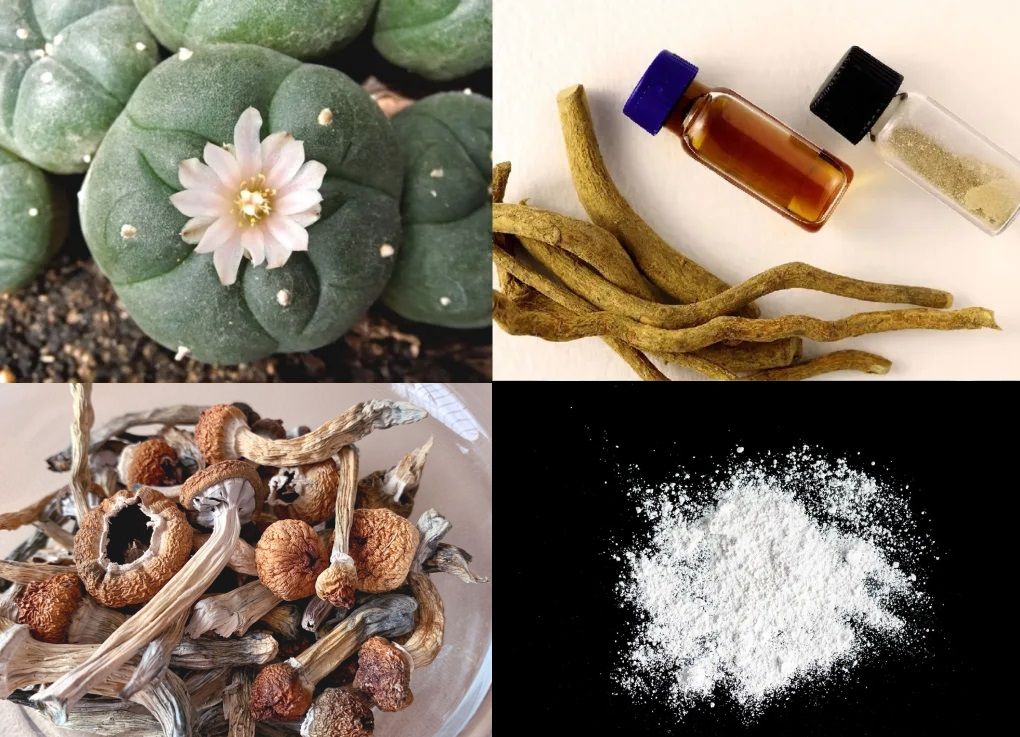An initiative to legalize certain psychedelics is receiving consideration in a joint legislative committee. The measure may appear on the November ballot if rejected by lawmakers.

Mescaline (top left), ibogaine (top right), psilocybin mushrooms (bottom left), and DMT (bottom right). All four would be legalized under the initiative put forth by Massachusetts for Mental Health Options.
In January Massachusetts for Mental Health Options (MMHO) submitted over 96,000 valid signatures for their psychedelics initiative, well more than the roughly 74,000 needed to force a vote of the legislature. Today, the Special Joint Committee on Initiative Petitions held a public hearing on the measure, with a potential vote coming in the near future.
If the initiative is not passed by the full legislature by May 1, MMHO will be given until July to collect an additional 12,429 signatures. If they’re successful, the proposal will be put to a vote of the people in this November’s presidential election.
The proposed law would legalize the possession and personal cultivation of up to one gram of DMT, 18 grams of non-peyote mescaline, 30 grams of Ibogaine, one gram of psilocybin and one gram of psilocin. Possessing up to twice this amount would be punishable by a fine of up to $100.
“This brings psilocybin and other breakthrough psychedelic therapies one big step closer to being available to adults dealing with depression, anxiety and other mental health challenges,” Jennifer Manley, a spokesperson for MMHO, said earlier this year when the group submitted signatures for their initiative. “We look forward to working with legislative leaders on the possibility and promise of natural psychedelic medicine as we continue our work to provide therapeutic access to these groundbreaking treatments.”
The initiative would “expand mental health treatment options in Massachusetts by providing new pathways to access natural psychedelic medicine therapy”, including “creating access to natural psychedelic medicine therapy and removing criminal penalties for personal possession of these medicines.”
The law would allow licensed service centers to supply psychedelics, overseen by a newly-created Natural Psychedelic Substances Commission (modeled after the state’s Cannabis Control Commission),
Psychedelics under the initiative would be subject to a 15% excise tax. The initiative would take effect on December 15, 2024, with the commission formed by March 1, 2025.
In Massachusetts six different cities have passed ordinances decriminalizing the possession of psilocybin, the psychedelic compound found in magic mushrooms. Salem was the most recent in May, joining Cambridge, Somerville, Easthampton, Northhampton and Amherst.







